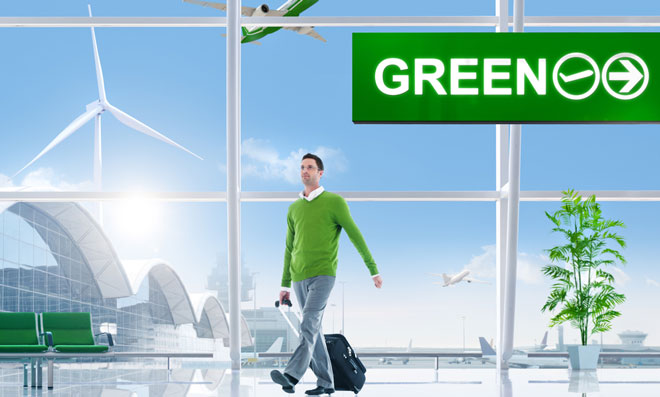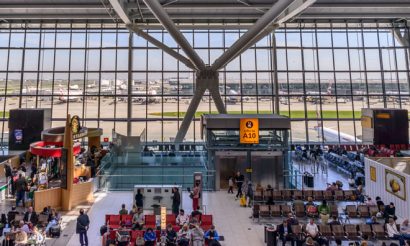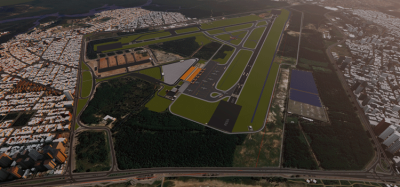Airport expansion plans must consider the environment
- Like
- Digg
- Del
- Tumblr
- VKontakte
- Buffer
- Love This
- Odnoklassniki
- Meneame
- Blogger
- Amazon
- Yahoo Mail
- Gmail
- AOL
- Newsvine
- HackerNews
- Evernote
- MySpace
- Mail.ru
- Viadeo
- Line
- Comments
- Yummly
- SMS
- Viber
- Telegram
- Subscribe
- Skype
- Facebook Messenger
- Kakao
- LiveJournal
- Yammer
- Edgar
- Fintel
- Mix
- Instapaper
- Copy Link
Posted: 15 August 2016 | Chris Ferrary, Head of Delivery and Innovation, Temple | No comments yet
Chris Ferrary, Head of Delivery and Innovation at leading environmental consultancy Temple shares his views on the ethical and ecological imperatives that must accompany airport expansion.


With all of the political change post ‘Brexit’ it would be easy to forget that some major strategic infrastructure decisions are long overdue, including the crucial issue of airport expansion, which may now be more fundamental than previously believed.
The outgoing Secretary of State for Transport Patrick Mcloughlin received the Airports Commission final report last July, and was set the task of contemplating how to balance local interests against the wider, longer term benefits for the UK. Despite a promise to come back to Parliament in Autumn 2015 with a clear direction to everyone on the government’s plans, in mid-December he announced that the Government thought the schemes at Heathrow, Gatwick and Stansted were all still viable. In particular, the scheme at Gatwick has recently been heralded as a potential gem for job creation.
“With Chris Grayling taking over as Secretary of State the decision regarding airport capacity will inevitably be re-assessed.”


Further work was promised so expansion can take place within the legal limits for air quality. More engagement with the promoters was also promised to make sure that the best package of noise mitigation measures is in place. In addition, Mcloughlin said he’d look at all measures to mitigate carbon impacts and address sustainability concerns, particularly during construction, and develop detailed community mitigation measures for each of the shortlisted options.
With Chris Grayling taking over as Secretary of State the decision regarding airport expansion capacity will inevitably be re-assessed; even so the outcome of this assessment is anticipated once Parliament returns from summer recess, according to the Government response to the Transport Select Committee’s Report on the matter. The Commission recommended an additional runway by 2030, it is believed that he still intends to deliver this. However, if he is to get the environmental response right, a number of challenges face the Government, whichever path is chosen.
- On air quality, the key thing is to get the surface access right. The poor air quality around Heathrow is as much about what’s happening on the M4 and M25 as it is due to the airport. Catering for more air travel while helping people breathe more easily has to be about making the first and last legs of journeys less polluting than now. That means making sure that people can get to and from the airport by modern, clean, quick and cheap public transport. Also, where travel by road is unavoidable, it has to be cleaner. Banning all but low and ultra-low emission vehicles, and promoting the use of electric vehicles on site, has to be at the heart of this.
- To mitigate the additional noise due to expansion, a combination of utilising the best technology available, the right operational regime, careful planning of both the geometry of new runways and surrounding development, and the right sort of noise reduction for existing communities needs to be combined with sensitive and responsive monitoring.
- The effect of carbon impacts and sustainability, particularly during construction, while important seems a bit of a red herring. As a global issue, where the runway is built will have little impact on the overall level of emissions and embedded carbon, if one accepts the expansion is needed.
- The key to community engagement is to properly understand the needs of the people living around the expanded airport and responding to these. On Terminal 5, the BAA proved skilled at mobilising the wider community whose livelihoods depend on a thriving Heathrow. However, it needs to be recognised that this isn’t everyone. There has to be something in the plans for those who feel excluded from the benefits of expansion, or only experience the downsides. Innovative and effective outreach is an important factor in this.
In this new political landscape, including a new relationship with Europe, a new Prime Minister and a new Secretary of State for Transport, it is not possible to predict the outcome of this decision, however, whichever option is chosen will need to confidently deal with these, sometimes knotty, challenges.

















